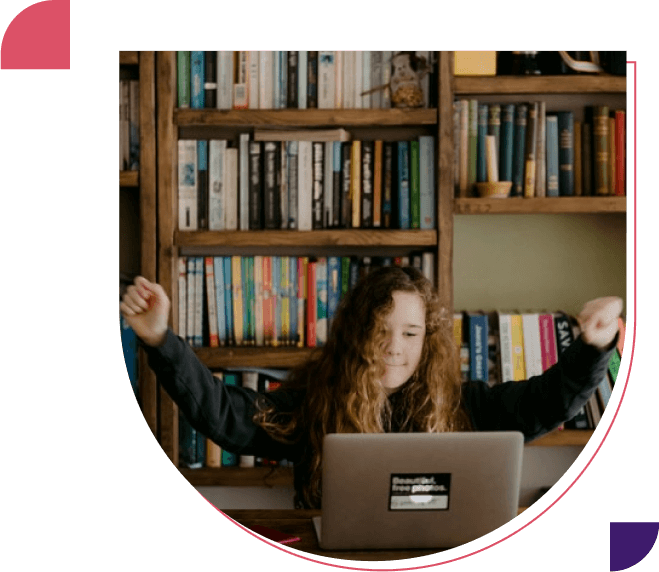
SEC Information Technology (IT) provides candidates with the underpinning knowledge related to the IT industry. By the end of the programme, candidates are expected to have gained sufficient skills and knowledge and be able to apply them. Information Technology (IT) touches upon concepts directly and indirectly relating to computer systems, networking, and applications of IT.
Individual attention
Holistic support
SEC O’Level
The study area SEC Information Technology (IT) is informed by the National Curriculum Framework (NCF).
Unit 1: Computer Hardware Installation
In this unit candidates will become aware of the risks involved when the necessary precautions are not taken in an IT environment. Hence, they will learn about the good practices that should be followed while replacing and/or installing and/or upgrading (RIU) internal hardware components.
Candidates will also learn about the different types of computer systems, including input, output and secondary storage devices, and their use. Given that no computer system works without software, candidates will learn how to install an operating system.
Due to various reasons, by time computer systems need to be upgraded or maintained. Therefore, through this unit, candidates will be able to recognise when a computer system needs to be maintained, be able to identify the problem and determine what kind of maintenance is to be carried out to solve the problem. In this process they will acquire the necessary skills to be able to choose compatible components, perform an internal hardware component RIU and install and configure the necessary software.
Candidates will also learn about the importance of testing the computer system after RIU hardware components to ensure that it works and therefore verify that the RIU is successfully carried out. They will also become aware of component registration and be able to document an RIU.
Unit 2: Multimedia Systems and Basic Website Design
This unit presents a general introduction to digital multimedia systems. It enables candidates to explore techniques associated with the development of an interactive multimedia product. Candidates will familiarise themselves with the different types of media and the hardware necessary to develop such media. Moreover, candidates will learn about multimedia systems, their roles, features and characteristics.
Through the unit candidates acquire the necessary knowledge in relation to image, audio and video file formats and their characteristics allowing them to choose the most appropriate formats according to the given circumstances. In order to apply the knowledge obtained, candidates will learn how to use multimedia hardware components and multimedia application software for media processing. Candidates will learn how to use software applications for editing images and creating animations. They will also be able to select and use video software tools and techniques to edit video sequences. This will allow candidates to use experimental and creative approaches while acquiring production skills. By combining text, images, animations, audio and videos, candidates will be able to develop a multimedia project using video editing software.
Candidates will also be able to design, create and modify simple static websites. This unit will enable candidates to achieve basic understanding of the principles of professional web design and development. Candidates will also learn about web design standards and why they are important.
Unit 3: Networking
In this unit candidates will become acquainted with the basic terminology related to computer networks, including types of networks, topologies, hardware components and data transmission media. In addition, they will also learn how computer systems communicate together over a network. Along with this knowledge, candidates will also acquire the necessary skills to plan a network setup. They will also learn how to crimp an Ethernet cable and be able to setup a small-scale network.
The setting up of a network by itself does not allow sharing of resources and data. Hence, candidates will also learn about the different user accounts and file/folder sharing permissions that can be assigned to different users. A hands-on-approach in which candidates are required to share files/folders and devices among users will also be covered.
Different network security threats and ways to protect the network from such risks will also be tackled. Candidates will also learn how using thirdparty security suites, firewalls and router settings, the network can be protected from threats and unauthorised access.
At the end of the programme, the student will be able to:
SEC Information Technology (IT) will cover all of the subject’s core syllabus including: Computer Hardware Installation, Multimedia Systems and Basic Website Design, and Networking. For a detailed breakdown of what each syllabus entails, click the links below:
Developed by Stefan Azzopardi